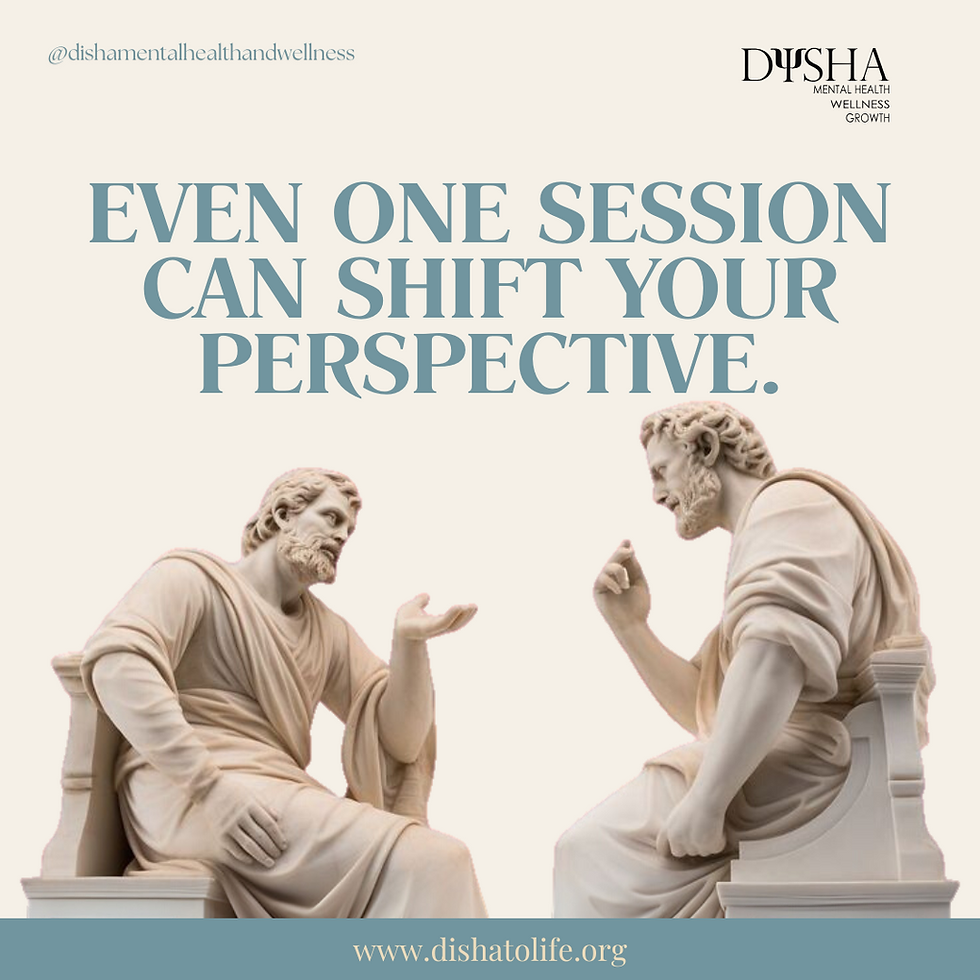Grass is Greener on the Other Side
- Mishi Mehta

- Aug 25, 2025
- 3 min read
We’ve all been there, scrolling through Instagram and seeing someone our age buying a house, getting married, or traveling the world. In that moment, it’s easy to think, “I’m so behind. What am I even doing with my life?”
Comparison is something we all do, often without realizing it. Sometimes, it pushes us to grow, but other times it leaves us feeling inadequate and stuck. The key is knowing the difference between harmful comparisons that drain us and helpful comparisons that encourage growth.

Harmful Comparisons
Harmful comparisons usually make us feel worse about ourselves. Instead of motivating us, they create self-doubt, envy, and stress. These patterns can create a cycle where we never feel “enough,” no matter what we achieve. For example, a student might compare their grades to a topper in the class and immediately feel like a failure, even if their performance has actually improved. Or a young professional might see peers getting promoted faster and start questioning their entire career path.
Some common harmful patterns are:
Upward Comparison with Envy – Looking at someone who seems “ahead” in life and feeling jealous or inferior instead of motivated.
Social Media Highlight Reels – Believing the curated snapshots we see online reflect reality, when in fact, everyone has struggles they don’t show.
Measuring Worth by Others’ Standards – Defining success by money, appearance, or social status, instead of what truly matters to you.
Constant Competition – Viewing peers as rivals in every aspect of life, which often leads to insecurity.
Downward Comparison with Negativity – Putting others down to feel better about ourselves, which may give temporary relief, but fosters bitterness long-term
Helpful Comparisons
However, comparison doesn’t always have to be harmful. If used thoughtfully, it can actually inspire us, give perspective, and help us grow.
For example, instead of feeling disheartened by a peer’s promotion, you might see it as proof that opportunities are possible in your field, and use it as motivation to work towards your own goals.
Some helpful approaches are:
Upward Comparison with Inspiration – Looking at someone’s journey and thinking, “If they can do it, I can learn from them too.”
Learning from Others – Treating others’ achievements as a guide, not a threat.
Me vs. Me – Comparing your current self with your past self, focusing on how much you’ve grown.
Appreciative Comparison – Noticing differences without judgment, and still feeling grateful for your own journey.
Celebrating Others’ Wins – Being genuinely happy for others, while staying grounded in your own goals.
How to Shift from Harmful to Helpful
Be mindful with social media – Follow accounts that inspire, not ones that trigger insecurity.
Set your own definition of success – Base it on your values, not just society’s checklist.
Practice gratitude daily – Remind yourself of what’s already going well in your life.
Focus on your journey – Track your own progress instead of comparing it to others.
Talk it out – Sharing these feelings with a friend, mentor, or therapist can help shift your perspective.
Final Thought
Comparing ourselves to others is natural; we all do it. But when comparison turns into constant self-criticism, it steals the joy from our present. By shifting from harmful comparisons to helpful ones, we can turn that habit into something that motivates us instead of holding us back. Everyone’s journey unfolds at its own pace.
The next time you catch yourself thinking you’re “behind,” pause and remind yourself: Your story is not meant to look like anyone else’s.



